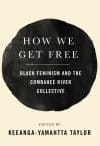Class
The COVID-19 pandemic has brought into sharp relief the deep structural problems affecting nonwhite racialized workers in the core and periphery. Yet, many social scientific analyses of the global political economy, at least in the pre-COVID era, are race neutral or willfully indifferent to the persistent racial pattern of global inequalities. Even if they do address legacies of colonialism, they ignore the ongoing racial logics of oppression embedded therein. | more…

Colonialism before the First World War
The Western European powers appropriated economic surplus from their colonies, materially and substantially aiding their own industrial transition from the eighteenth century onward, as well as the diffusion of capitalism to the regions of new European settlement. In the case of India, the concept of drain is based on the fact that a substantial part of its earnings was never permitted to accrue to the country; it was instead appropriated by the ruling power: Britain. | more…

Among ethnic disasters of the past few decades, few can match in intensity or have been reported in the media more extensively than those of the Indigenous in Guatemala. The social structure of the nationÑits hierarchy, driven by a light-skinned population, most of whom are ethnically mestizo but who do not identify with the purely IndigenousÑits history, and its small size make it an important site for the documentation and reporting of ethnic disputes and differences. | more…

As the long history, right to the present day, of police and vigilante violence against black people has shown with great clarity, the racial chasm between black and white people in the United States lives on. A few black men and women have climbed into the 1 percent, and a sizable African-American middle class now exists. But by every measure of social well-being, black Americans fare much worse than their white counterparts. Just as for the economic, political, and social distance between capitalists and workers, so too is there a differential between black and white people, for these same interconnected components of daily life continue because of the way our system is structured. | more…

Germany is commonly perceived as a strong, dependable island amid a sea of gyrating European uncertainties, a down-to-earth, dependable ally in attempts by the better U.S. presidents to move the world forward as steadily as possible. For the past thirteen years, this view has been personified in the clear, undramatic words and deeds of Angela Merkel, Chancellor of Germany since 2005. Considerable doubts in this appraisal, with evidence that Germany, like every other country, has never been a monolith free of class conflict and other contradictions, are addressed in Oliver Nachtwey’s Germany’s Hidden Crisis: Social Decline in the Heart of Europe, out now from Verso Books. In describing West German, then all-German, developments from the end of the Second World War until the present, Nachtwey analyzes from the left, unafraid to utilize the ideas of Karl Marx as well as a host of more recent analysts of many shades. | more…

Your Socialism Depends on It
Revolting Prostitutes reminds readers that this struggle is at once bigger than any one sex worker’s immediate needs, but also must be precisely driven by these day-to-day needs. While this might at first seem contradictory, the book emphasizes how the collective workforce is constituted by individual workers with varied experiences, all of which are unique and valid. Narrative matters and, with Revolting Prostitutes, we are gifted one shaped by nuanced, considerate, care-informed members of the impacted working community. | more…

Fourteen provocative papers on the oppression of women in capitalist countries, along with three articles on the subordinate position of women in two communist countries, Cuba and China. These important, often path-breaking articles are arranged in five basic sections, the titles of which indicate the broad range of issues being considered: Introduction; motherhood, reproduction, and male supremacy; socialist feminist historical analysis; patriarchy in revolutionary society; socialist feminism in the United States. The underlying thrust of the book is toward integrating the central ideas of radical feminist thought with those pivotal for Marxist or socialist class analysis. | more…

This reprint of Keeanga-Yamahtta Taylor’s introduction to How We Get Free—Black Feminism and the Combahee River Collective serves as an introduction to both the Combahee River Collective and their seminal statement on black feminism. | more…

The most general statement of our politics at the present time would be that we are actively committed to struggling against racial, sexual, heterosexual, and class oppression and see as our particular task the development of integrated analysis and practice based upon the fact that the major systems of oppression are interlocking. The synthesis of these oppressions creates the conditions of our lives. | more…

One of the horrors of the capitalist system is that slave labor, which was central to the formation and growth of capitalism itself, is still fully able to coexist alongside wage labor. But, as Karl Marx pointed out, it is the fact of being paid for one’s work that validates capitalism as a viable socio-economic structure. Beneath this veil of “free commerce”—where workers are paid only for a portion of their workday, and buyers and sellers in the marketplace face each other as “equals”—lies a foundation of immense inequality. Yet workers have always rebelled. They’ve organized unions, struck, picketed, boycotted, formed political organizations and parties—sometimes they have actually won and improved their lives. In his timely and innovative book, Michael D. Yates asks if the working class can, indeed, change the world. | more…

In his insightful new book, the historian David Roediger raises critical questions for scholar-activists seeking to understand white racism and contemporary capitalism and its class realities. He joins a long line of thinkers who have clearly recognized the need for both specifically racial and more universal, class-oriented programs of major social and economic change. | more…

In his timely new book, David Gilbert addresses a subject that could not be more relevant: the white working class in the United States. He brings a much-needed historical perspective to current debates around the politics and identity of white workers, then and now. | more…










